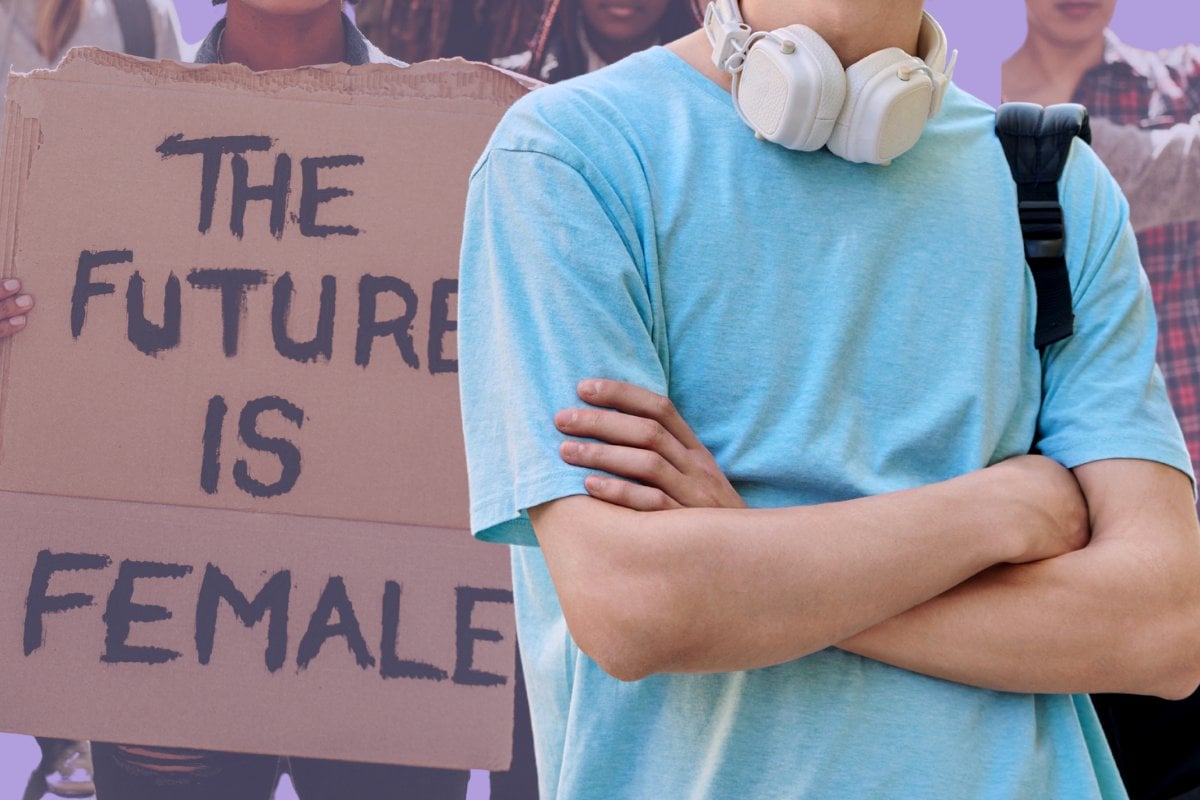
A decent amount of young guys are wary of feminism. In fact, more Gen Z men than Baby Boomers believe feminism has done more harm than good.
It's a scary reality. So how did we get to this point?
New research from the King's College London's Policy Institute and Global Institute for Women's Leadership in partnership with Ipsos has been released, and it tells a sobering story.
Gen Z men are notably less positive about the impact of feminism, one in six young men say it's done more harm than good, versus the 13 per cent of Baby Boomers who feel this same way.
Plus, 37 per cent of men aged 16 to 29 also say the term "toxic masculinity" is an unhelpful phrase.
Professor Bobby Duffy is the director of the Policy Institute at King's College London. He notes: "This is a new and unusual generational pattern – normally, it tends to be the case that younger generations are consistently more comfortable with emerging social norms. The lessons are that polarisation can increase if we don't take steps to understand these divisions."
Watch: A man living like a woman for a day. Post continues below.
Feminism at its core is about equality between the sexes. It's the advocacy of women's rights on the basis for equality and equity – sounds nice right? We think so.
